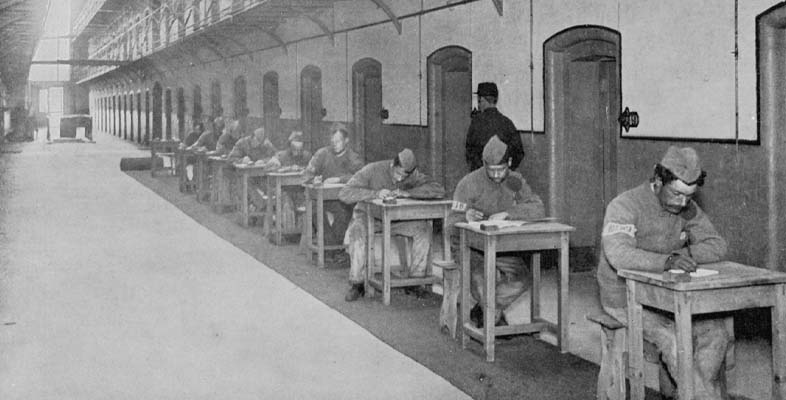8 Reflection
Before you attempt the quiz you are encouraged to ask yourself three questions about the whole course. The aim is for you to think about your ways of thinking, your values, the challenges you overcame, the insights you gained and if you now understand more about yourself as a learner. We would like you to leave this course confident that you are competent at time management and are well-prepared for further study,
It is recommended that before you write a couple of sentences in response to each question, you read these notes.
What happened?
Was the content interesting? Can you give examples?
Perhaps you found the debates among the reformers of interest. Slowly, evangelical and utilitarian ideas gave way to the desire to isolate and shape the ‘criminal class’. Perhaps you found the voices of the prisoners of most interest. Which aspects of the course have you shared with anybody else?
So what?
What is the value of the knowledge you have acquired? Did you learn or improve a skill?
For example, you will have done a lot of critical reading of a range of written sources, including graphs and diagrams, as well as listening to a song and looking at some pictures. You have looked for what was not said as well as that which was said. Was this an important idea to understand? How might you apply it once you finish the course?
What next?
How might you apply the skills that you have gained? You have drawn up a study timetable, would it now be easier to draw up a timetable for another activity?
You may well have found that your note-taking improved as you found a system which worked for you. When studying your next course, what sorts of questions might you ask of it, even before you start the course?
In this final session of the course, you examined some aspects of who was taught and what they were taught towards the end of the 1800s. In the preceding seven sessions, you looked at different approaches to the study of prisoner education, how to assess sources, and you were offered some ideas about study skills, timetabling and reflection. You now know where to look to if you wish to refresh your memory as to why, between 1780 and 1840, the penitentiary was conceived and then versions of it were built. You can assess the reasons why prisoners received free education, by law, about half a century before children did.
